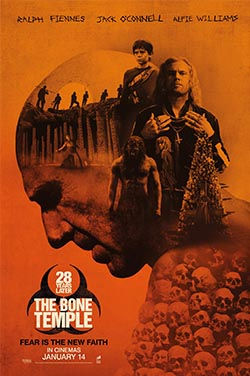22 July Movie Review
- Rob Cain

- Jan 19, 2019
- 3 min read

Released: October 10th 2018 (Netflix Release)
Length: 143 Minutes
Certificate: 15
Director: Paul Greengrass
Starring: Anders Danielsen Lee, Jon Øigarden, Thorbjørn Harr, Jonas Strand Gravli, Ola G. Furuseth, Ulrikke Hansen Døvigen and Isak Bakli Aglen
Teaming up with Netflix for his latest retelling of a past event, Paul Greengrass’s 22 July turns to the horrific events that unfolded in Norway at the turn of the century.

In July 2011, the far-right terrorist Anders Behring Breivik (Portrayed in the film by Anders Danielsen Lie) committed two lone wolf attacks on innocent people in Oslo Norway; the first being a bomb attack on government offices and the second a mass shooting on the island of Utøya, where young people were gathered for a summer camp. Beginning on the terrorist’s initial preparations and swapping between the victims, their families, the government and Anders, 22 July delivers a sweeping and most importantly, authentic view of the event which killed 77 people. The terror attacks only form the first hour of the film however; 22 July is the first directorial effort from Greengrass that delves fully into the aftermath of the tragic events and blowback it caused to society. This is the most thought-provoking aspect of the film, delving into the nature of radicalisation and how both national governments and society deal with its prevalence. We see the court hearings transpire with the mass-murderer and its centre and these are often the most difficult parts of the film to take in based on how the terrorist acts.

With a variety of characters to keep track of, 22 July ensures that each perspective is clearly defined. The cast (as well as the production crew) is entirely Norwegian with the young people being represented by Viljar Hanssen, who is horrifically injured in the attack. Through slow and careful rehabilitation alongside his family (played by Isak Bakli Aglen and Thorbjørn Harr), we see first-hand the physical and psychological difficulties the victims had. These moments feel incredibly personal and young actors, particularly Jonas Strand Gravil, do a fantastic job of capturing the trauma and stress in the attack’s aftermath. Then you have the legal teams working to bring the attacker to justice, most notably Jon Øigarden’s Geir Lippestad. The dilemma of representing a known mass murderer in court brings with it numerous ethical considerations that hang over the narrative. Finally Breivik himself is presented with an arrogant coldness by Anders Danielsen Lie; the look on his face showing pure hatred and disdain throughout the film. Just like the plot, every person involved in the tragic events is treated with the utmost respect and portrayed in the most realistic manner possible. The only real gap shows with the government segments, personified by the then Prime Minister Jens Stoltenberg (Ola G. Furuseth) who receive less screen-time, probably to ensure things didn’t become too politicised.

Much like the director’s previous works, the presentation of the terror attack is focused and visceral, a steadfast commitment to retelling the event as it happened. While the bombing of the offices is sudden and quick, the camerawork when the island is attacked is violent and shaky to show the chaos that unfolded. The violence on display is disturbing but it never crosses the line into gratuitous brutality; instead the film uses the actions and mannerisms of the terrorist to thrust its shocks upon the audience. 22 July consistently makes it clear that these violent actions have an ideological grounding and the political viewpoints loom large in the overarching context. The music is mostly ambient pieces left to the background, simply conveying the emotions of the moment and never disrupting the film’s direct approach to tone. Just like the story and narrative, the production’s style never crosses into sensationalism veers into one side over another.
22 July continues the director’s masterful recounting of real-world events, but by moving beyond the attacks, Greengrass creates a deeply ominous message that resonates greatly in today’s troubled political climate. It’s a film that belongs to Norway itself and whether you follow global affairs or not, it demands your attention.
Rating: 4.5/5 Stars (Brilliant)










Comments